
Not able to foster a cat yourself but want to help cats in our foster program? Sponsoring a foster cat with a monthly donation is a great way to help ensure that our special needs kitties get the veterinary care, medications, and prescription food they require. We take in cats and kittens with medical or behavioral issues that require extra resources.
Your monthly donation will help pay for insulin for diabetic cats, subcutaneous fluids for cats with chronic kidney failure, and prescription food for cats with gastrointestinal disease, to name just a few of our regular expenses. Your financial support will also allow us to take the time necessary to help cats with behavior issues. These cats are often healthy but need to remain in our program for longer than the typical foster cat as we help them learn to trust and bond with people.
Sponsor a cat for a life-saving monthly donation that fits your budget!
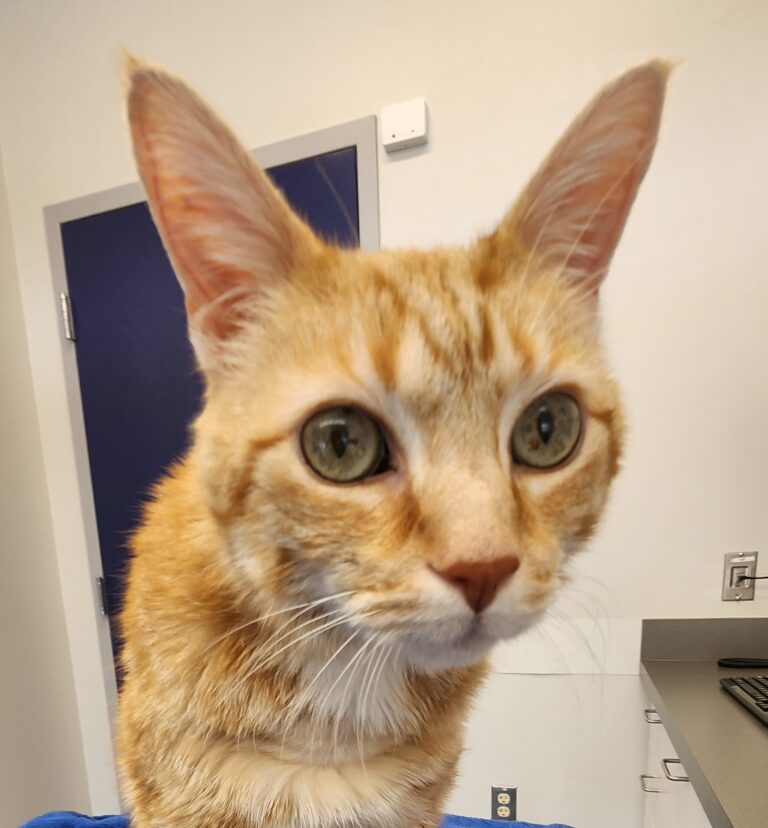
Snickers
Declared “the best cat ever!” by one of our foster coordinators, Snickers was relinquished to our partner shelter, where the veterinarian discovered he had untreated diabetes. Because the disease requires close monitoring, especially in the early stages of treatment, the shelter asked if we could take him into our foster program. We got him started on insulin, and to keep a close eye on his blood sugar, he’s been fitted with a Freestyle Libre that allows his foster mom to easily check his glucose multiple times a day without having to stick him. He also had upper respiratory and urinary tract infections that required veterinary care
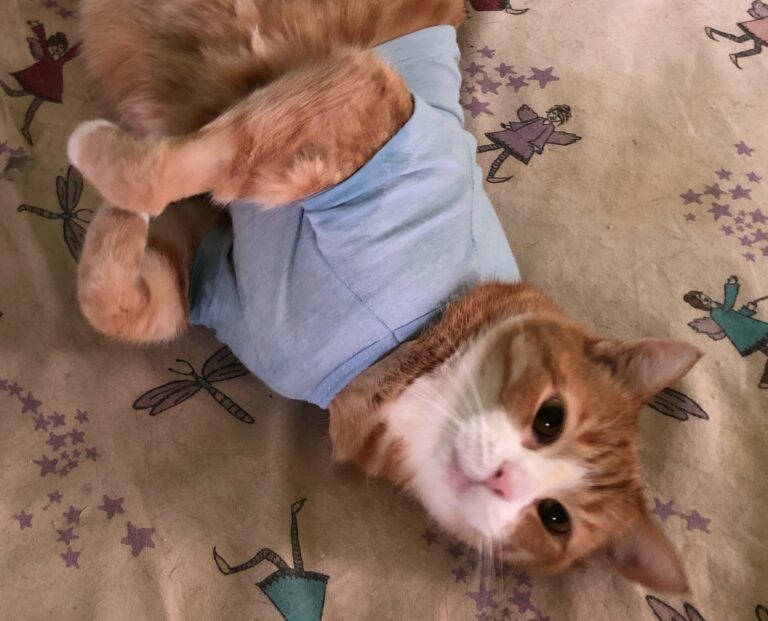
Jimi
This super social, affectionate boy was also discovered to have diabetes by the vet at our partner shelter. Thanks to the expert teamwork of one of our foster coordinators and Jimi’s foster mom, his diabetes is in remission, which means he no longer needs insulin. His diet still needs to be carefully controlled, but with the right care, he should remain in remission and enjoy a long, happy life.
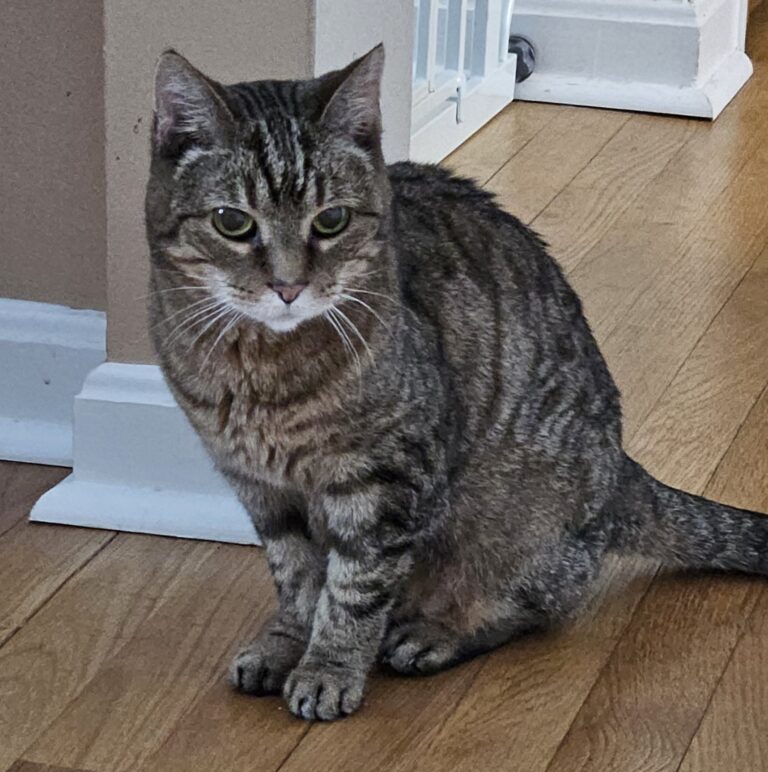
Patty
Sweet and spry 15-year-old Patty has stage 2 kidney disease. To help her kidneys do their job of filtering toxins from the blood, Patty gets subcutaneous fluids, essentially kitty dialysis, twice a week. She’s also fed a prescription diet formulated to reduce the kidneys’ workload.
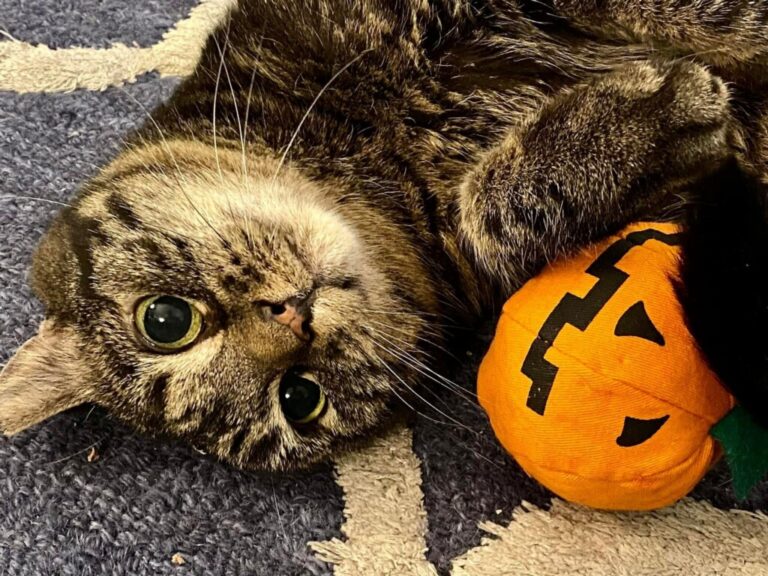
Dorothy
Another one of our sweet senior kitties, Dorothy also has early-stage kidney disease. She doesn’t yet need subcutaneous fluids but is on a renal sparing prescription diet. She also gets a supplement to treat her osteoarthritis.
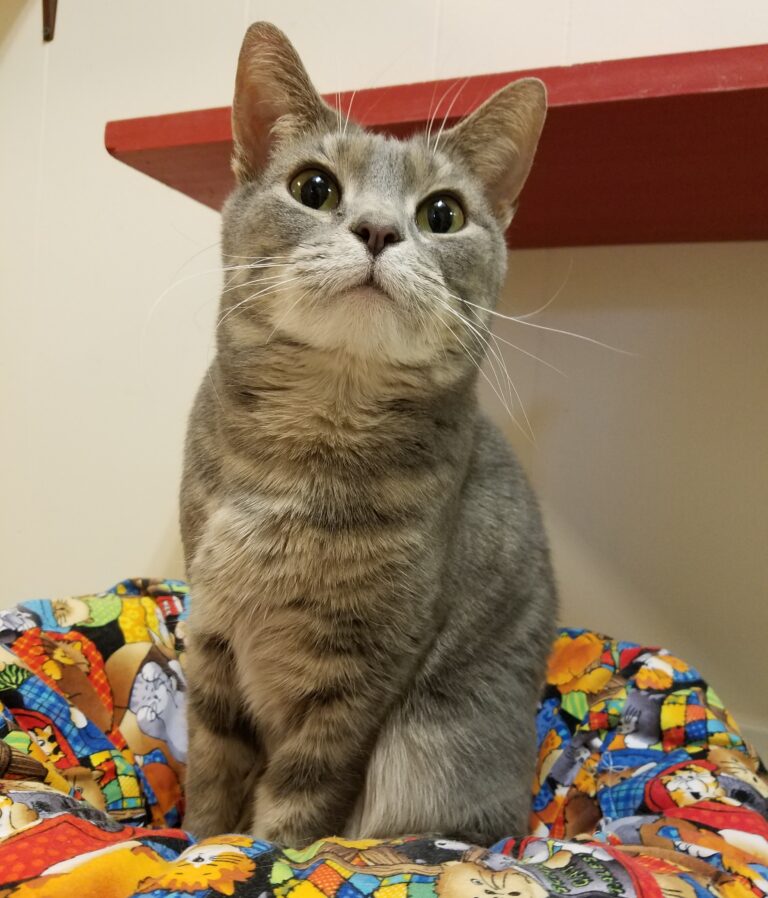
Athena
This beautiful girl was relinquished to us when her owner had to go to a nursing home. Athena had been born to an unsocialized mom, and the only person she had exposure to in the first three years of her life was her owner. Because she was undersocialized, she exhibited fear aggression to all humans except her owner. We also discovered that pain and discomfort from a gastrointestinal disorder called dysbiosis was exacerbating her fear aggressive behavior—anyone would be cranky if they were in constant pain! After implementing a socialization plan and putting her on a prescription diet to manage dysbiosis, Athena is a happy, affectionate cat.
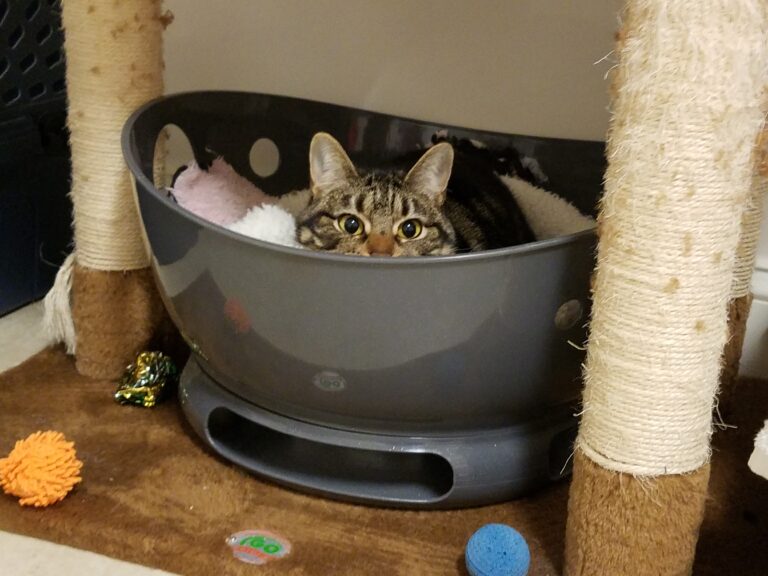
Hesper
Relinquished for behavioral reasons, Hesper came to us as a “house feral,” a cat who, often due to animal hoarding, has lived in a home but hasn’t been socialized. Because she’d never known life outdoors, we couldn’t release her to a colony. And because she was fearful of people, we knew she needed intensive behavioral intervention before we could promote her for adoption. Happily, she has blossomed into an affectionate, cuddly cat, though she will need a quiet home and patient adopter who’s willing to give her extra time and support to adjust to her forever home.
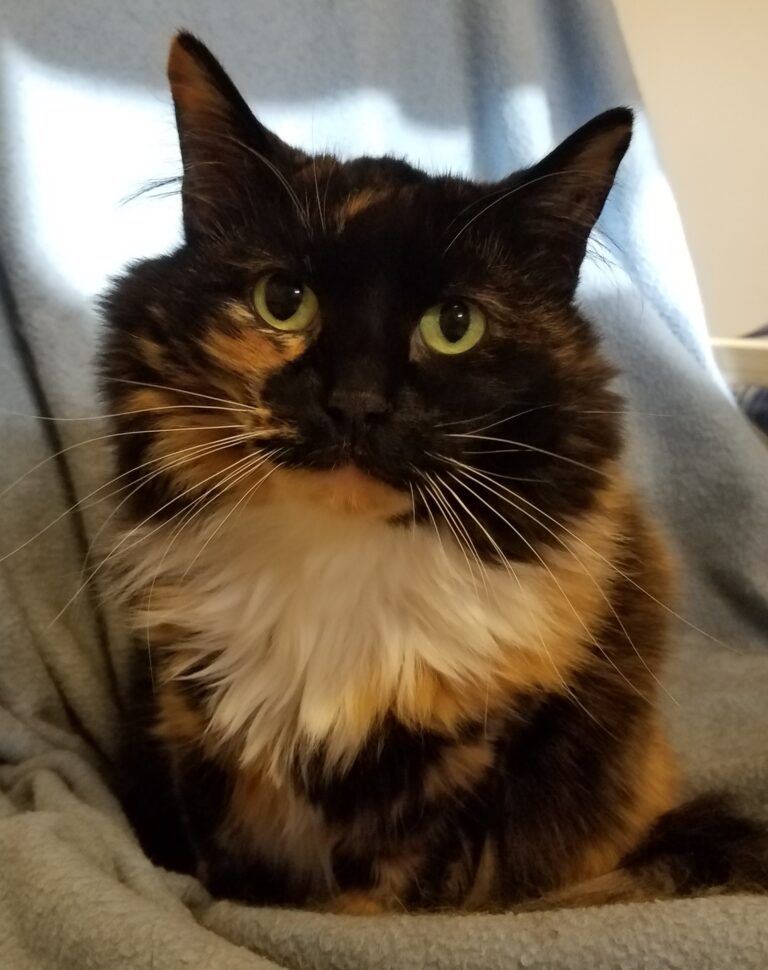
Miss Kitty Fluffington
Another kitty who came to us unsocialized, Miss Kitty had been trapped with her two kittens and brought to our partner shelter. Knowing she stood little chance of being adopted, we brought her into our foster program, socialized the kittens and got them adopted, and then turned our attention to Miss Kitty. Like Hesper, she’s come a long way and has become quite an affectionate, playful cat though will need a quiet home and patient adopter.
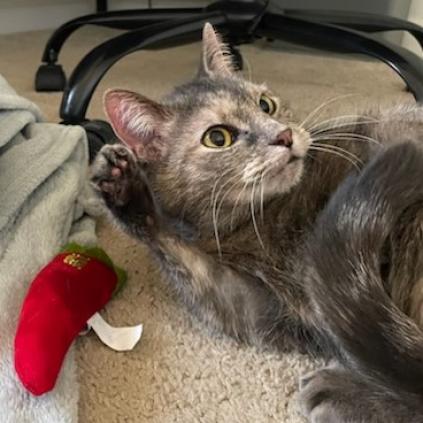
Bella
Covered in large patches of red inflamed skin from an untreated allergy, Bella was miserable when she came to us. In fact, the vet said Bella had the worst case of eosinophilic granuloma complex, the technical term for the ugly and painful skin condition, she’d ever seen. Bella is on a prescription hypoallergenic diet and an immunosuppressant drug that keeps her immune system from overreacting. Since starting the diet and medication, Bella is a different cat. Her coat is sleek and shiny, and with no more itchy, painful lesions, Bella has gone from cranky kitty to loving feline.
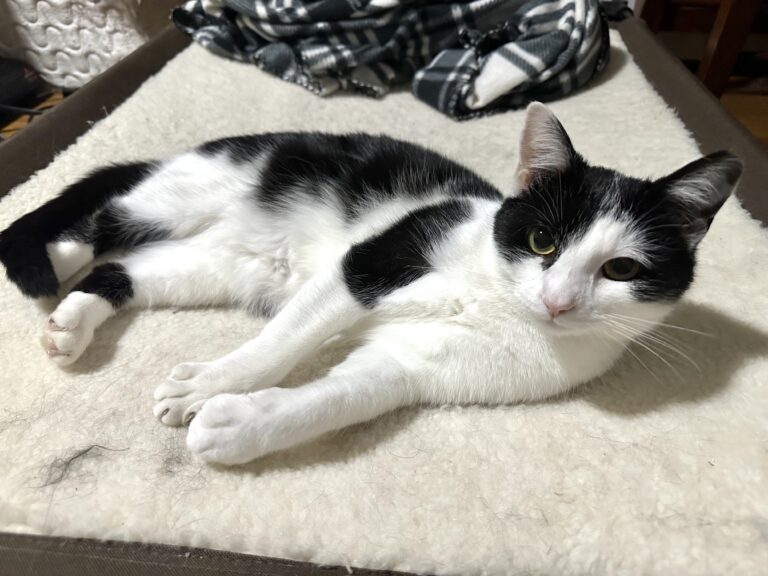
Mabel
Young, spunky, and affectionate, Mabel looked like the picture of health but initially tested positive for both feline leukemia and feline immunodeficiency virus. A round of additional tests showed that she is not, in fact, infected with either virus. Her observant foster mom did notice, though, that she often coughs when eating or drinking. A vet exam revealed that she has a hole in her soft palate, the part of the roof of the mouth back by the throat. The coughing is caused by food and water going into her sinuses via the hole, which will require surgery to close up.
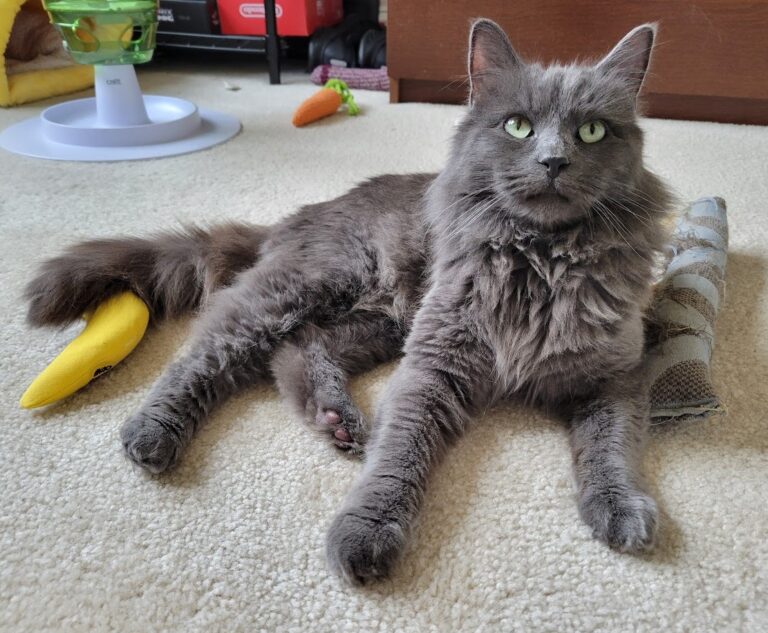
Finn
Our newest foster cat, Finn is confident, friendly, and playful. But unfortunately, because he was handled in ways he found unpleasant or scary, he is prone to swatting and biting if touched when he doesn’t want to be. He quickly figured out that aggressive behavior got him what he wanted—to be left alone—and learned to use that behavior in other contexts, such as biting to get attention or scratching and biting during play. Thankfully, he’s got an experienced foster mom who is working with our cat behaviorist to implement a behavior modification plan to resolve his aggressive behaviors so he can be a loving, affectionate cat we know deep down he truly is.


